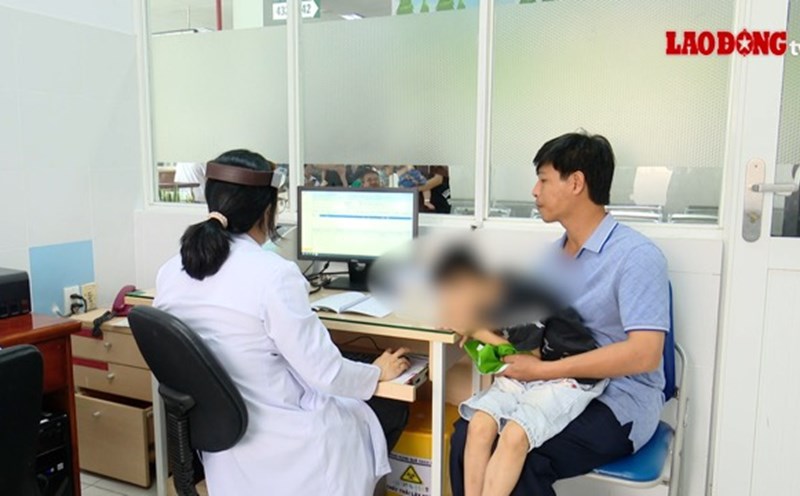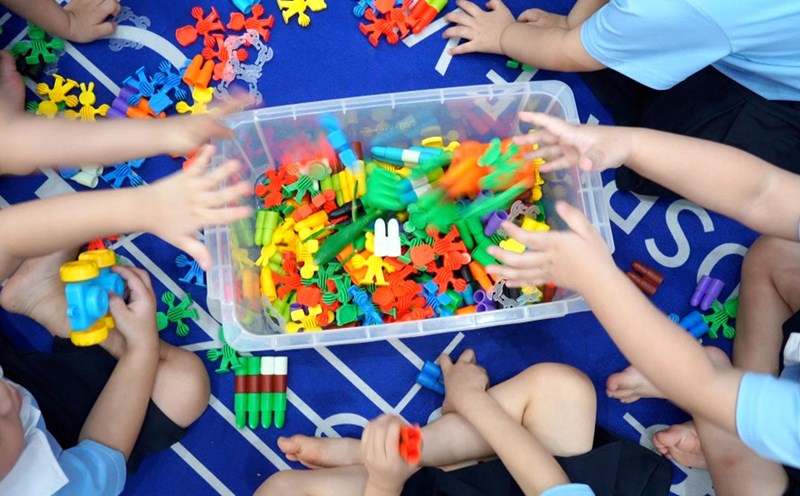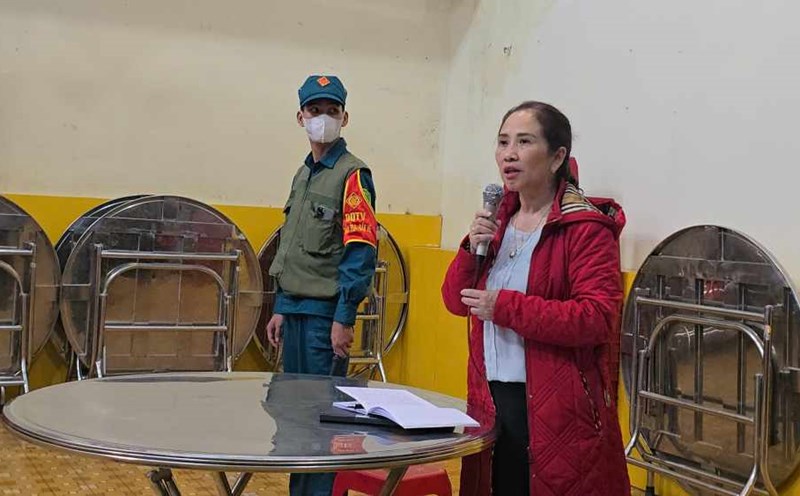Focus on cleaning work at school
According to data from the Hanoi Center for Disease Control, from September 12 to September 19, the whole city recorded 258 cases of dengue fever, 189 cases of hand, foot and mouth disease, an increase of 43 cases compared to the previous week and the number of cases is forecast to increase when kindergartens and primary schools receive children back to school.
To ensure the health of students, from the beginning of the school year, many schools have prepared plans for disease prevention and classroom hygiene, especially for preschool classes and children with weak immune systems.
According to Ms. Nguyen Nho - Head of the Ministry of Science and Technology Kindergarten class, in preschool age, children are still young so they often put their belongings and toys in their mouths. Therefore, cleaning toys and classrooms regularly is very necessary.
On Friday every week, teachers in classrooms clean items and toys to ensure the safety of students. After extracurricular lessons or before meals, teachers instruct students to wash their hands with soap to minimize the risk of disease transmission" - Ms. Nguyen Nho said.
In addition to epidemic prevention work in class, teachers also closely coordinate with parents to monitor students' health. When detecting signs of illness or fatigue in children, both sides will proactively inform each other in a timely manner. Teachers also regularly propagate and remind parents to fully vaccinate their children before the new school year to prevent respiratory infectious diseases.
Strengthening children's resistance
According to Dr. Nguyen Sy Duc - Department of Infectious Diseases, Hanoi Children's Hospital - at the time of changing seasons, students enter school, high concentration increases the risk of infection with diseases through the respiratory and digestive tracts, including the hands, feet and mouth.
Recorded at the Department of Infectious Diseases, the number of examinations and hospitalizations due to hand, foot and mouth disease in recent days has tended to increase. The disease mainly occurs in children under 5 years old and is contagious in the collective environment.
At school, teachers can recognize the disease through signs such as children eating little, diarrhea, loss of appetite, fever, crying or showing hittles on the hands, feet, mouth, thighs... When seeing unusual signs, teachers need to immediately notify parents to take the children for timely examination - Dr. Nguyen Sy Duc shared.
Doctors recommend that schools should regularly clean floors, toys, door handles; limit children from sharing items and gathering too much. Parents should closely monitor their children's health, wear masks in crowded places, take them to the doctor early when there are signs of illness, and at the same time increase their children's resistance through diet, exercise, drinking enough water and getting fully vaccinated.
Proactive disease prevention from the beginning of the school year, especially during the changing seasons, will contribute to building a safe and healthy learning environment, limiting the risk of outbreaks.











